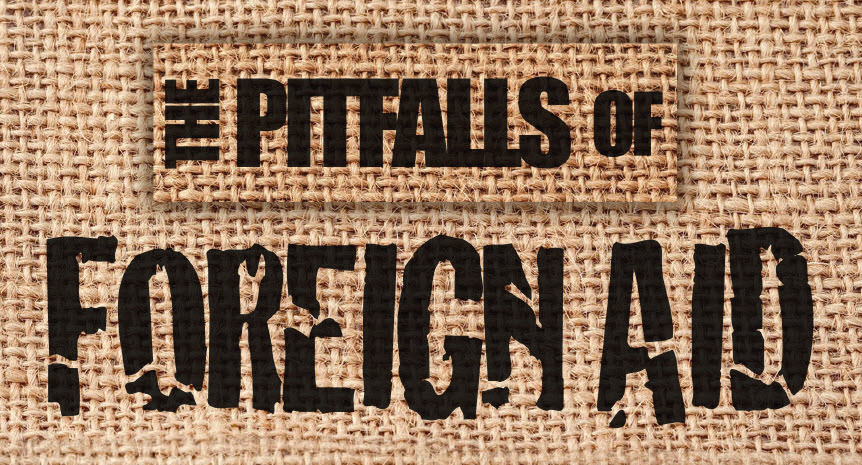The Pitfalls of Foreign Aid
How to tackle the poverty problem at its roots
By Luis Fernando Arce, Staff Writer
ASSUMING RESPONSIBILITY
2012 is approaching, and more people than I’d like to believe assure me that the world is coming to a turning point and headed downwards. I’m not sure if it will or not, but speculation over that fact is a topic for a different paper. However, to our great dismay, their supporting evidence is not the movie 2012, or even the Mayan predictions, but the increase in frequency and magnitude of the disasters happening around the globe.
Perhaps it’s because I’ve put on my pessimistic sunglasses, but it seems that more and more political unrest is occurring around the world, many exacerbated by the fury of nature, others by the wrath of corruption. Egypt, Tunisia, Greece and the United Kingdom come to mind.
These phenomena, of course, are not new. Natural disasters and political unrest have been occurring in countries around the globe for as long as civilization has stood; and for nearly as long, the idea of being charitable and helping those who seem in need has stood parallel to it. In the New Testament, Jesus tells a story about the Good Samaritan, who stopped to help a man whom he had never met before; move forward in time and we begin to see charity itself turn into an institution.
Today, most of us are familiar with charitable organizations, both private and public, and at some point or another in our lives we donate money so that it may reach a faceless image somewhere in the world and help them survive, if only for one more day… or so we’d like to assume.
AID – THE PRIVATE AND PUBLIC WAY
Foreign Aid is money or resources transferred from one country (developed) to another (underdeveloped) without expecting full repayment. In order to qualify as Aid, the money must be identified as part of an Official Development Assistance program, meaning that all loans or transfers must be made with the explicit purpose of generating economic development in the recipient country. The loans must be made with less stringent repayment options, and must have no commercial ambitions attached.
Foreign Aid is also divided into two camps: Public Development Assistance, which includes donations given directly from one government to another or donated by multilateral agencies such as the IMF and World Bank, and Private Development Assistance, referring to private non-governmental organizations and institutions, such as the Red Cross or Free the Children.
When citizens opt to donate money, they do it through private, non-profit, non-governmental organizations, which take the donations and allocate them to the different projects they have in place. Moreover, citizens are also able to join these organizations as volunteers and travel abroad to put in hands-on work on projects involving construction of houses, schools, hospitals, etc. Private organizations focused on foreign aid are one of the channels through which private citizens can become active in the issues happening abroad.
[pullquote]Humanitarian aid, for Africa, has taken the form a “debilitating drug” to which the continent has become addicted.[/pullquote]
On the other hand, multilateral institutions and governments involved in foreign aid transfer their funds directly to the recipient government. As far back as 1970, the richer governments that were members of the United Nations pledged to direct up to 0.7% of their Gross National Income towards foreign aid, a target that only the Scandinavian countries, the Netherlands and Luxemburg have met, and for which the U.S. has ranked nearly last among OECD countries, with 0.15%.
There is an open and sometimes heated debate regarding whether government or private organizations are more efficient, not only in delivering aid, but in helping the beneficiary countries erect a more stable political and economic system than previously held. But it has come abundantly clear to many that neither has been entirely good at it, prompting many people to refuse donating money, afraid of “where the money will really end up”.
“Kenya now joins countries like Pakistan in being labelled corrupt,” reads an article in the Calgary Herald business section. “It is because of this reputation that Canadians appeared reluctant to donate generously towards relief aid when Pakistan faced devastating floods last year.”
While the stark reality is that most of the countries that are beneficiaries of foreign aid are corrupt, there are underlying causes that either sustain the corrupt regimes or allow them to continue unfettered. Now, although that may seem grim, the fact that western democracies and donors of foreign aid are largely responsible for these conditions is outright dismal.
































Share the post "The Pitfalls of Foreign Aid"